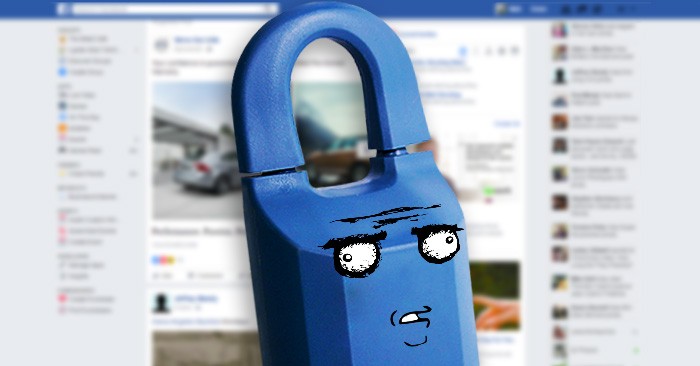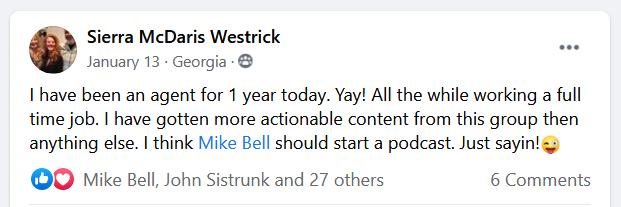
Agents: How To Not Suck At Social Branding (even if you have the personality of a lockbox)
There’s no way around it… Now, more than ever, you’ve GOT to stand out as a real estate agent. To say our industry is over-saturated


You’ve received an offer on your home and you’re thrilled at the prospect of getting the deal done. But first you need to make it through the next hurdle: the home inspection. In most real estate contracts, a home inspection contingency is in place, allowing the buyer a chance to back out should significant mechanical or structural issues come to light during the inspection.
While you may think your home will pass with flying colors, it’s at this stage that many deals fall through. With so much at stake, it makes sense that sellers would want to do as much as they can in advance to get their home in the best possible shape before this top-to-bottom review. By addressing any problems, sellers can assure buyers that the property is in move-in condition and save themselves a lot of negotiating and repair work down the road.
The following are areas where unpleasant surprises often arise and, ultimately, either kill the sale or cost the seller a bundle.
As you look around the interior and exterior of your home, check both the ceilings, moldings, and lower portions of walls for any cracks that could indicate a shift in the foundation. If you spot any, find a qualified foundation repair contractor or a structural engineer who can assess the situation and let you know if your issues are cosmetic or require repairs to the foundation. Rule of thumb: The sooner you deal with the issue, the better (and less expensive) it will be.
Over time, the elements take a toll on a chimney. Just like your foundation, you may start to see cracks emerge. Or, you might not be able to spot them if they’re at the very top. Either way, if there’s a structural issue that makes it unsafe, a home inspector will definitely point this out to your buyers.
Just because water isn’t cascading down from the ceiling, that doesn’t mean a home inspector won’t notice if you’ve had a leak that’s caused water damage. Stains on ceilings are often a tell-tale sign of previous problems. While your issue may have been something relatively harmless, like an overflowing toilet, buyers will suspect the worst if they notice signs of trouble. If you have a leak, fix it. Then, remove any reminders of the problem by covering stains with a fresh coat of paint. If you’re dealing with ceiling tiles, water and bleach can go a long way to restoring them to their once-clean appearance.
Unfortunately, mold typically follows a leak. And nothing scares away buyers quite like that funky fungus. So be sure your home is mold-free by checking every nook and cranny. For example, are your bathrooms vented properly? In some homes, those helpful ceiling fans are actually sending moist air straight to the attic, causing mold to grow.
If your basement is often damp, be sure to run a dehumidifier and check for mold there as well. Should you discover mold in any location, it’s best to contact a professional who can perform removal and remediation before the inspection. Plus, you’ll feel better — both mentally and physically — once it’s gone.
Any homeowner who’s tried to take a few shortcuts by not hiring an electrician should make sure the work they’ve done is up to code prior to the inspection as electrical violations are both common and easy to spot. Faulty wiring is a fire hazard so the sooner you address it, the safer for everyone.
As most homeowners know, replacing a roof is not cheap. So it makes sense that home inspectors are going to take this section of the inspection very seriously. If you know your home could benefit from a roof replacement, consider taking care of it before putting your place on the market. Even if you believe the roof has a few good years left in it, hearing that it’s nearing the end of its life is enough to send buyers running.
Regardless of the season, a home inspector is going to want to see that heating and cooling systems are functioning efficiently. Consider the age of your furnace or HVAC system. Have they been well-maintained over time? If you have an oil tank, buyers may ask you to remove it as these have been known to leak and cause environmental hazards.
From leaky faucets and loose toilets to lead in the pipes and low water pressure, plumbing problems can cause your deal to go down the drain. If you’re aware of a problem but put off calling the plumber, now’s the time to take care of it.

(Shh, our secret)
Show your sphere your an expert. We have over 2100 articles covering every real estate topic your audience will love.
Position yourself as a real estate authority!
Real estate + topical events — the perfect match!
Become the bearer of good vibes!
Because hey, everyone loves to laugh!



Get our weekly email that makes communicating with your sphere on social actually enjoyable. Stay informed and entertained, for free.

There’s no way around it… Now, more than ever, you’ve GOT to stand out as a real estate agent. To say our industry is over-saturated

We’ve all experienced the stress and tension of moving, right? Even after you’ve done all the footwork to find the perfect place, you’ve still got

It hits you like a ton of bricks the first time you hear it could take months (or even years) for a real estate lead

You’ve probably been told to build an email database and send them stuff consistently, right? Some agents do. Many don’t. Have you? If you haven’t,

When you’re in the middle of working with a client, you’re touching base with them constantly. You can actually get pretty close to them, and
Depending on your situation, it may not take the full 30 minutes.

This reset password link has expired. Check the latest email sent to you.















